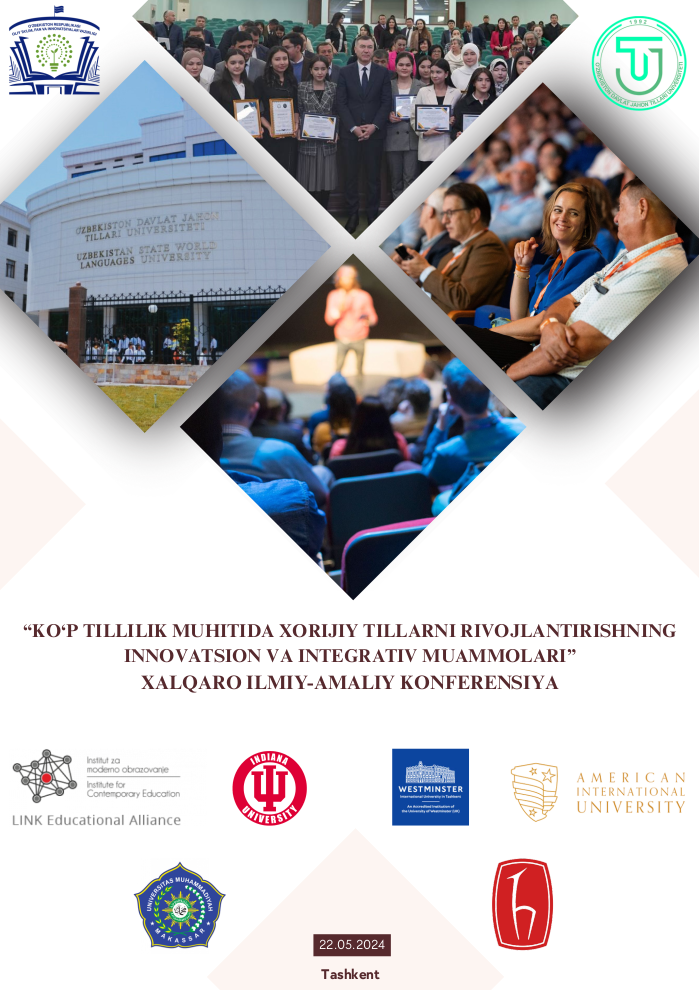Inklyuziv ta’lim sharoitida chet tillarini o‘qitishdagi muammolar
https://doi.org/10.5281/zenodo.11255587
Kalit so‘zlar
Qiyinchiliklar, ko'rsatmalar, inklyuziv ta'lim, munosabat, maxsus ta'lim ehtiyojlariAnnotasiya
.
Foydalanilgan adabiyotlar ro‘yhati
Cummins, J. (1989). A theoretical framework for bilingual special education. Exceptional children, 56(2), 111- 119. https://doi.org/10.1177%2F001440298905600203
Gardner, R. C. (1985). Social Psychology and Second Language Learning: The Role of Attitudes and Motivation. London, Edward Arnold. https://doi.org/10.1017/S0261444800000045
Gardner, R. C., & MacIntyre, P. D. (1993). A student's contributions to second-language learning. Part II: Affective variables. Language teaching, 26(1), 1-11.
Learning disabilities, 30(3), 321-332. https://doi.org/10.1177%2F002221949703000307
Stubbs, S. (2008). Inclusive education. Where there are few resources. Oslo, The Atlas Alliance Publ.
Lucero, R. S. (2020). Inclusive practice: challenging exclusion in educational norms. In A.
Howley, S. Kroeger, B. Hansen, & C. Faiella (Eds.), Inclusive education: A systematic perspective (pp. xi–xii). Charlotte, NC: IAP Publishing.
Keinert, H.L., Cloyd, E., Rego, M., & J. Gibson (2007). Students with disabilities: Yes, foreign language instruction is important. Teaching Exceptional Children, 39, 24-29.

